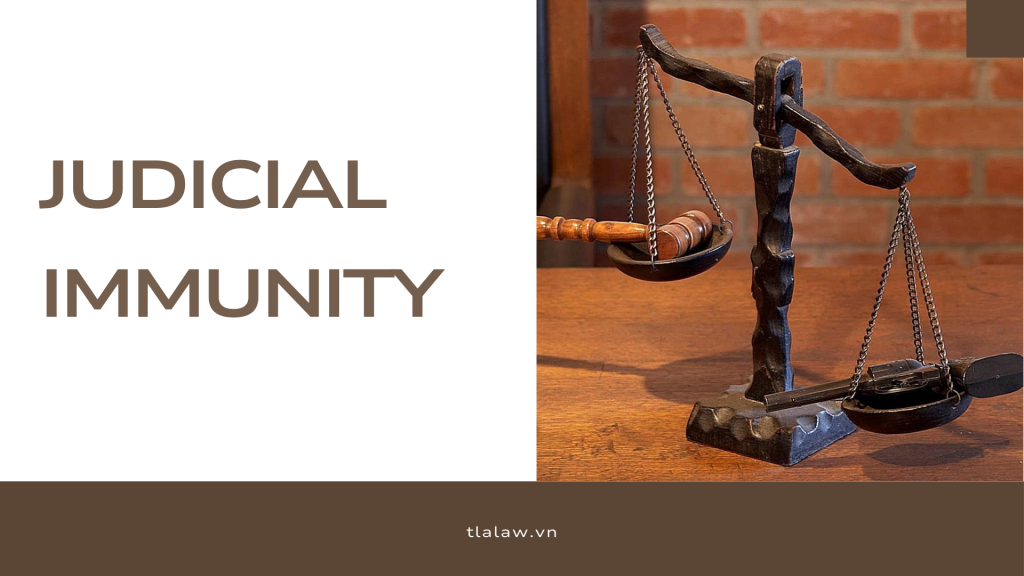
1. Introduction
Judicial immunity is a fundamental principle in international law that exempts sovereign states from the jurisdiction of foreign courts. This doctrine is rooted in the principles of state sovereignty and equality, ensuring that no state is subject to the legal authority of another without consent. Over time, judicial immunity has evolved from absolute immunity to a more restrictive approach, reflecting the complexities of international relations and economic interactions.
2. Historical Development of State Immunity in International Law
2.1. Origins of State Immunity
The concept of state immunity is derived from the principle of sovereign equality, encapsulated in the Latin maxim “par in parem non habet jurisdictionem”, meaning “equals have no jurisdiction over each other.” This principle, first articulated in the 17th century, was reinforced by the social contract theory of Thomas Hobbes, which asserted the absolute and indivisible nature of state sovereignty. By the 18th century, this idea had solidified into customary international law, establishing that no sovereign state could be subjected to the jurisdiction of another without its explicit consent.
2.2. Legal Foundations of State Immunity
State immunity is primarily governed by national laws and international treaties. Several countries have codified this principle into domestic legislation, such as:
- The U.S. Foreign Sovereign Immunities Act (1976)
- The UK State Immunity Act (1978)
- The Singapore State Immunity Act (1979)
- The Canada State Immunity Act (1985)
At the international level, state immunity is also recognized through customary international law and treaty obligations. Some key treaties addressing this issue include:
- The Brussels Convention on State-Owned Ships (1926)
- The Vienna Convention on Diplomatic Relations (1961)
- The Vienna Convention on Consular Relations (1963)
- The European Convention on State Immunity (1972)
- The United Nations Convention on Jurisdictional Immunities of States and Their Property (2004)
Although the UN Convention of 2004 is a landmark treaty on judicial immunity, it has not yet entered into force due to insufficient ratifications. Nevertheless, it provides a comprehensive legal framework defining the scope and limitations of state immunity in civil matters.
3. Theories of Judicial Immunity
Judicial immunity can be categorized into two main doctrines: absolute immunity and restrictive immunity.
3.1. Absolute Immunity
Absolute immunity posits that a state is completely exempt from foreign judicial proceedings, regardless of the nature of its actions. This doctrine was widely accepted until the mid-20th century, particularly in Europe and North America. It is based on the notion that sovereign states should not be subject to the laws of another jurisdiction, as this would undermine their sovereignty.
However, the increasing involvement of states in commercial activities led to challenges in applying absolute immunity. State-owned enterprises and government contracts with foreign entities raised questions about whether states should remain immune from litigation in purely commercial disputes.
3.2. Restrictive Immunity
In response to these challenges, many countries have adopted the doctrine of restrictive immunity. Under this approach, state immunity is recognized only for sovereign acts (jure imperii)—actions performed in the exercise of state authority. In contrast, commercial or private acts (jure gestionis)—such as trade agreements, business contracts, and employment disputes—are not covered by immunity.This shift was first formalized in the Tate Letter (1952) in the United States, which influenced subsequent legal frameworks, including the European Convention on State Immunity (1972) and the UN Convention on Jurisdictional Immunities (2004).
4. Key Aspects of Judicial Immunity in the 2004 UN Convention
The 2004 UN Convention outlines three core elements of judicial immunity:
Immunity from Jurisdiction (IFJ – Immunity from Legal Proceedings)
- States cannot be sued in foreign courts without their consent.
- Domestic courts must dismiss cases against foreign states unless immunity is expressly waived.
- Exceptions apply in commercial transactions and employment disputes.
Immunity from Pre-Judgment Measures (IFE – Immunity from Enforcement Actions)
- Even when a state agrees to legal proceedings, its assets cannot be frozen, seized, or otherwise encumbered without explicit consent.
- Courts may not impose interim measures, such as asset freezing, without the state’s approval.
Immunity from Post-Judgment Enforcement (IFE – Immunity from Execution of Judgments)
- If a state is found liable in a foreign court, the enforcement of judgments remains subject to its consent.
- State-owned properties used for public purposes (e.g., embassies, military assets) are generally exempt from enforcement measures.
These provisions ensure that while states can be subject to legal proceedings in certain cases, their sovereign functions remain protected.
Judicial immunity is a dynamic principle balancing state sovereignty with legal accountability. While the historical doctrine of absolute immunity emphasized state equality, modern trends favor restrictive immunity, particularly in commercial disputes. The 2004 UN Convention represents a milestone in defining the limits of state immunity, but its implementation remains incomplete. As international trade and diplomatic relations continue to evolve, further refinements in judicial immunity laws are expected to ensure fairness while preserving sovereign rights.
______________________
Contact Our Legal Experts
At TLA, our experienced lawyers specialize in diverse legal fields, including criminal, civil, corporate, and family law. We provide comprehensive legal support and personalized advice.
For Expert Legal Consultation, Contact Us:
1. Lawyer Vu Thi Phuong Thanh – Director of TLA Law Firm, Hanoi Bar Association.
Email: vtpthanh@tlalaw.vn
2. Lawyer Tran My Le – Chairwoman of TLA Law Firm’s Members’ Council, Hanoi Bar Association.
Email: tmle@tlalaw.vn
Address: Floor 7, No. 6 Duong Dinh Nghe Street, Yen Hoa, Cau Giay, Hanoi
Website: https://tlalaw.vn/
Hotline: 0906246464
_LTTTra_

